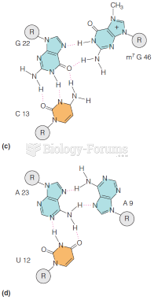This topic contains a solution. Click here to go to the answer
|
|
|
Did you know?
Glaucoma is a leading cause of blindness. As of yet, there is no cure. Everyone is at risk, and there may be no warning signs. It is six to eight times more common in African Americans than in whites. The best and most effective way to detect glaucoma is to receive a dilated eye examination.
Did you know?
The FDA recognizes 118 routes of administration.
Did you know?
Cyanide works by making the human body unable to use oxygen.
Did you know?
Increased intake of vitamin D has been shown to reduce fractures up to 25% in older people.
Did you know?
The first successful kidney transplant was performed in 1954 and occurred in Boston. A kidney from an identical twin was transplanted into his dying brother's body and was not rejected because it did not appear foreign to his body.
 Vital signs for clients in metabolic alkalosis may reveal hypotension, bradycardia, and an irregular
Vital signs for clients in metabolic alkalosis may reveal hypotension, bradycardia, and an irregular
 Running time on 100-meter sprint for men and women master athletes increases with age. Source: Korho
Running time on 100-meter sprint for men and women master athletes increases with age. Source: Korho





